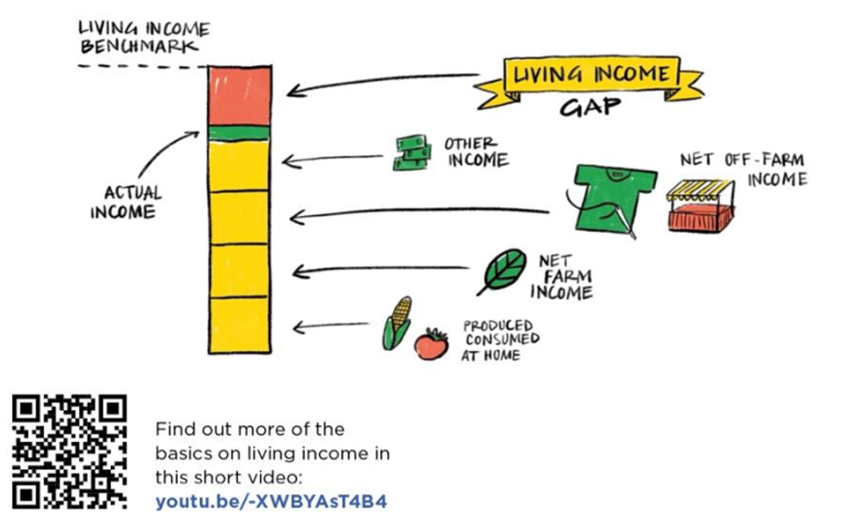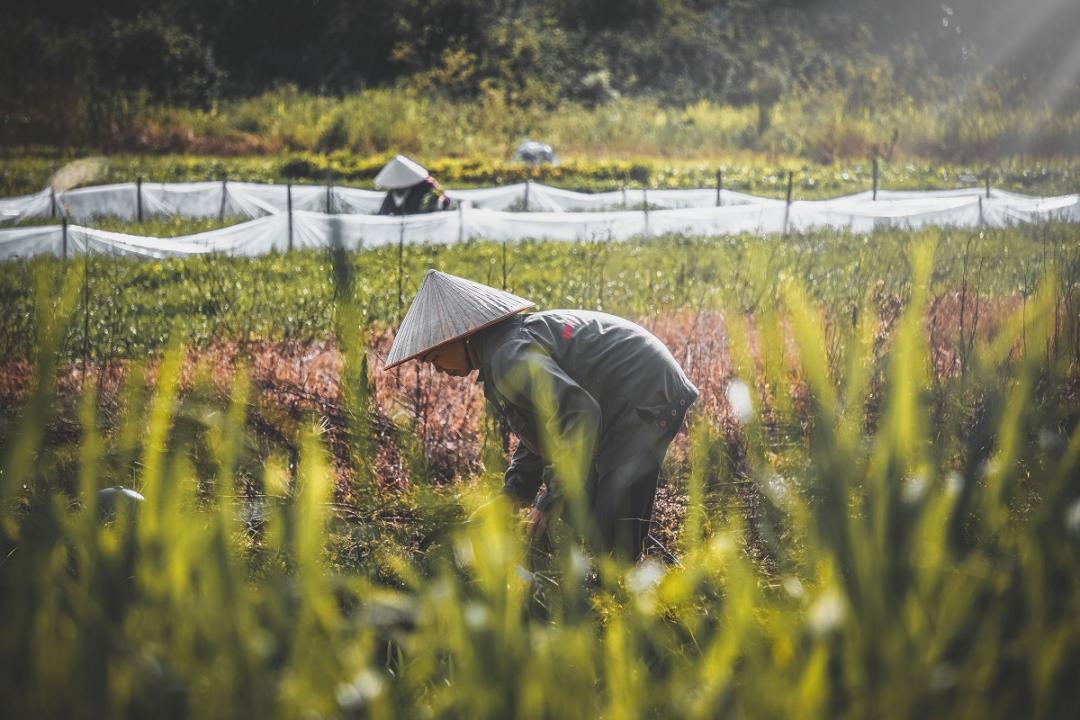From inclusion to a living income
The economic effects of the pandemic and climate change, increases in food and input prices, and rampant volatility in price and risk all put pressure on smallholder farming households across a variety of agriculture production systems. The time for closing living income gaps for smallholder households is now.
Living income is defined as the net annual income required for a household in a particular place to afford a decent standard of living for all members of that household. Elements of a decent standard of living include access to food, water, housing, education, healthcare, transport, clothing, and other essential needs, including provision for unexpected events. The difference between what a household currently earns and the living income benchmark is referred to as a living income gap.

Why living income matters for your business
There is a clear business case for taking action to close living income gaps. Companies can both leverage opportunities and mitigate risks related to supply security, reputation, and human rights. Beyond the business case, there is great urgency for closing living income gaps for smallholder households.
The economic effects of the pandemic and climate change, increasing food and input prices, and rampant volatility in a system already not equally and fairly distributing value and risk, put undue pressure on households in commodity sectors. This will increase cost of living and costs of production, which will raise living income gaps across producing areas and communities.
Protecting human rights is the responsibility of all stakeholders, and upcoming legislation in the EU will introduce new requirements for companies to reach European markets. Ignoring the protection of basic human rights around income can instigate other human rights violations, such as forced or child labor.
Frontrunners in closing living income gaps can enhance their reputation and brand value which can secure customer loyalty, increase market share and/or increase market price. These business successes can be leveraged with investors to access new or more favorable financing. On the flipside, ignoring large living income gaps risks negative publicity, consumer boycotts, and potential divestment from investors.
Without supply, there is no business. Investing in closing living income gaps can improve relationships with suppliers and improve supply security from a volume and quality perspective, including the sustainability of that supply. It is well-known in agriculture commodities such as coffee, cocoa and tea that the aging farming population is a significant risk to future supply, so new producers need to be incentivized by a clear business-case for their own production investments. Without a clear production-level business case, supply can be destabilized.
Many companies feel overwhelmed by the magnitude of the problem, and the complexity of potential solutions – they need concrete guidance on how to take action.
A way forward
This is the purpose of the IDH Living Income Roadmap. The roadmap is designed to bring simplicity to the complexity of the issue and enable companies to start their journey towards closing living income gaps in their supply chains. Through 5 steps, IDH offers guidance, data-driven tools and a range of resources that demystify what data is needed, which actions to take, and who are potential partners along the way. It highlights the need to use comparable data, engage in multistakeholder partnerships and take immediate action. While there are five steps, these are iterative and may be taken at different times or in parallel.
Practical action is needed
Given the size of living income gaps across sectors and locations, companies and other stakeholders will need to take more holistic action than in the past. This implies going beyond focusing on increasing productivity and/or quality of production through a sustainability project or program. Instead, companies need to integrate their living income goals in their procurement, marketing and/or product innovation strategies. To achieve long-term, sustainable results these strategies must often go beyond individual actors or supply chain partners and require a multi-stakeholder approach.
Strategies can range from service delivery for improved production and processing, to brand and consumer engagement, to improving the enabling environment. See below for 6 strategic areas that multiple stakeholders can address. Each of these strategies should influence an improvement in one or multiple drivers of household income, or the underlying conditions that enable an improvement.
Start your journey today
Ambitious and aligned actions across stakeholders are required to close living income gaps. We need all actors at the table, and there’s no time to waste. Start your journey to close living income gaps in your supply chains today and consult with the Living Income Roadmap to demystify your role and concrete actions.
IDH is active in the cocoa, coffee, tea, spice and cotton sectors; and we work with a broad range of stakeholders at global, landscape and local levels. Reach out to our team for direct support and guidance or join the Friends of the Roadmap community to keep in touch on latest developments.
For more information, reach out to Ashlee Tuttleman at tuttleman@idhtrade.org.
